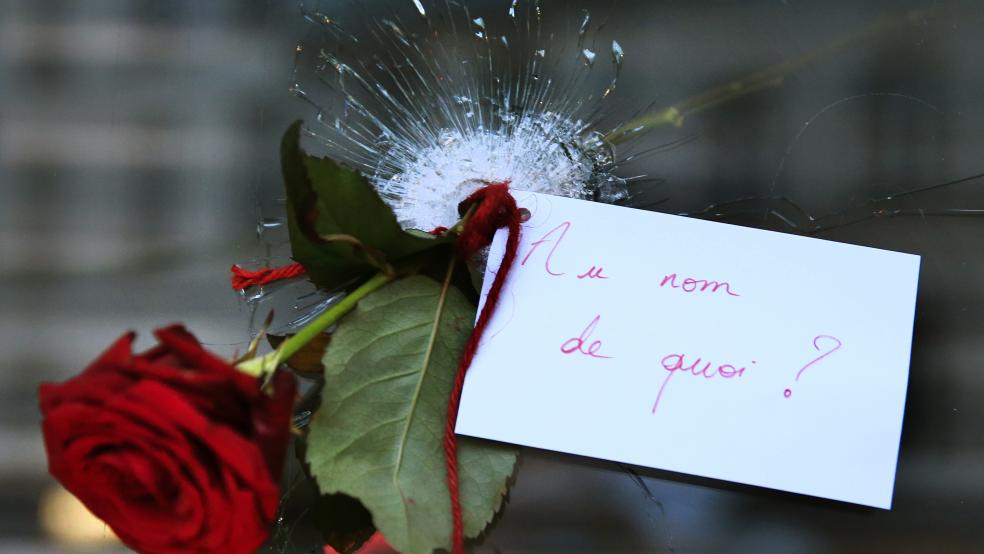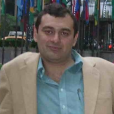As the toll of the six attacks in Paris on Friday rises to at least 129 dead and 350 wounded, including 99 in critical condition, the French and the world are asking very basic questions: Who did it, why, and how can future attacks be prevented?
The planning of this attack was significant. "This operation is all about timing. It took place before the 20 countries conference, Vienna conference [Syrian war talks] and the sailing of aircraft carrier Charles De Gaulle to the Gulf to fight ISIS," says Hisham al-Hashimi, the expert on ISIS at the Iraqi National Security Advisor's office.
Why France and Why Now?
The objectives are multifold, Hashimi adds:
- Humiliate Francois Hollande in front of the far right
- Prove that ISIS is still strong after the latest defeats in Beiji and Sinjar in Iraq and Kweires airbase in Syria
- Tighten the French stance on immigrants
- End France's support to the moderate Syrian rebels
- Use European public opinion to pressure governments to withdraw from the U.S.-led alliance against ISIS as ISIS founder Abu Musab al-Zarqawi did a decade ago in Iraq by taking hostages and conducting attacks on the Philippines, Spain, Italy and Denmark.
While the horror was directed indiscriminately, the real audience was France’s Muslim community. "The Muslims of France were the most horrified people last night," says Saif Alkhayat, an Iraqi writer who lives in Paris.
The Missed Warnings
As with the Charlie Hebdo attacks 10 months ago, French home security services failed to uncover the plot before it went into action. They also failed to respond rapidly to the attacks. Ismaël Omar Mostefai, one of the perpetrators, was convicted eight times of criminal felonies. He was also on the French authorities' radar as an extremist for some time, but he was left to operate freely. With 1,700 French citizens having joined ISIS, 1,200 French nationals or residents on the extremist list, including more than 200 French citizens who came back to France after fighting with jihadists in Syria, French authorities decided that it is too costly to assign a dozen or two dozen people to monitor each extremist.
The Israelis and the Saudis communicated intelligence warnings to France before the attacks that weren’t taken seriously enough. Before the France – Germany soccer match started, a bomb threat earlier on Friday forced the German team to evacuate its residence.
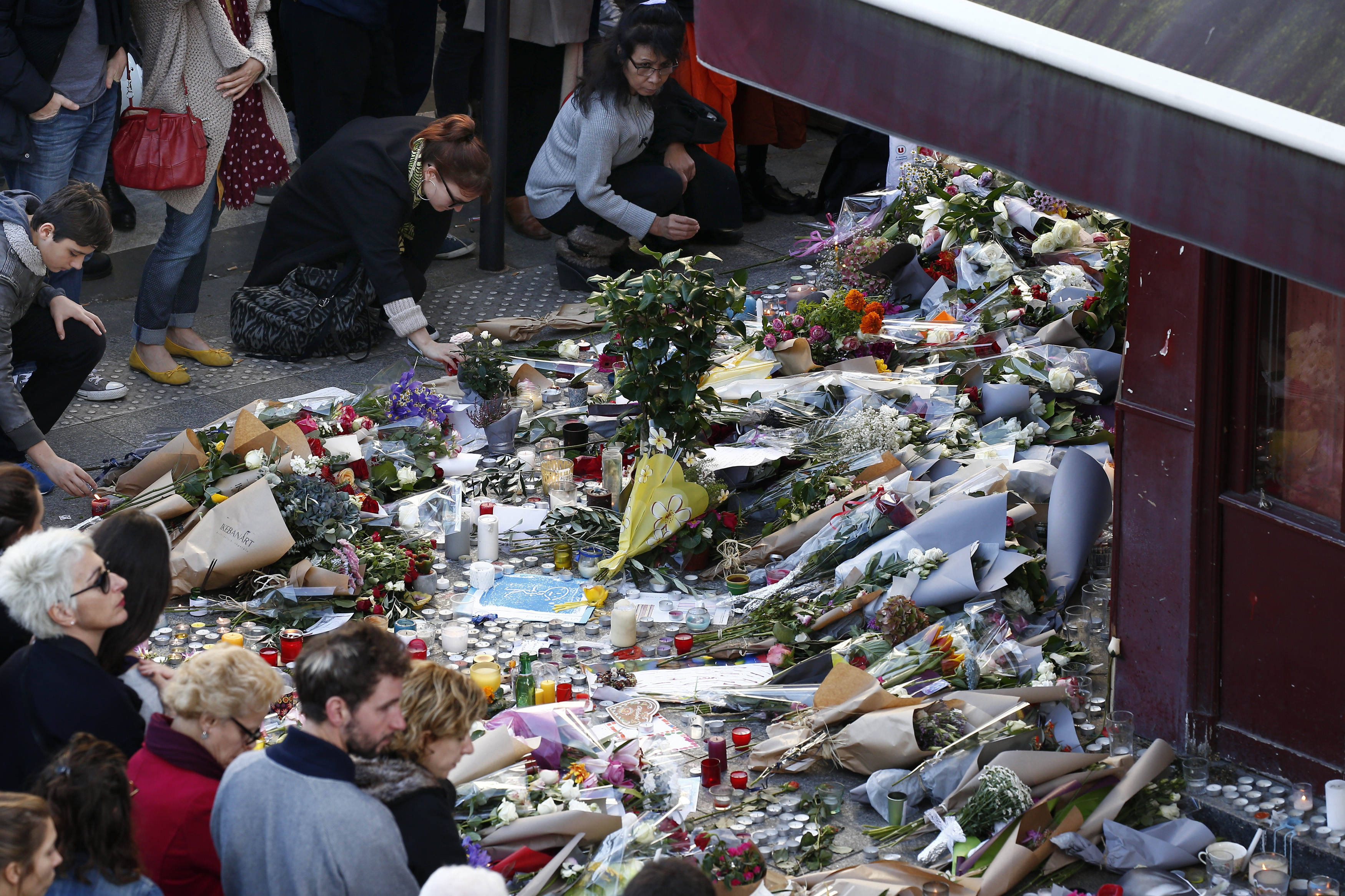 Several key public venues lacked proper security procedures. The seven attackers who were in the three groups involved were able to attack seven times in six locations and move from one target to another with minimum interference by the police. The response at the theater — where most of the victims were located — came late.
Several key public venues lacked proper security procedures. The seven attackers who were in the three groups involved were able to attack seven times in six locations and move from one target to another with minimum interference by the police. The response at the theater — where most of the victims were located — came late.
Finally, according to the Terrorism Research and Analysis Consortium (TRAC), a man known as Reda, arrested in September 2015, already had plans to attack a concert hall in Paris during a live event. Before he left Syria, he was instructed by the Islamic State to conduct the attack and to get in touch with a handler in Paris upon arrival. Although Reda was arrested, his handler remains at large, suggesting that Reda might have been sent from Syria to join an already embedded cell within Paris.
Who Was Behind the Attacks?
The Paris attacks — the largest in Europe in a decade — are similar in many ways to the Mumbai attacks in November 2008. At that time, 10 Pakistani attackers from a militant group carried out 12 shootings and bombings in public places in Mumbai over the course of four days, killing 166 people.
While ISIS has claimed responsibility for the attacks and the French president accused the terror group of launching a war on France, the possibility of al-Qaeda's involvement is still strong. France is home to many North African Islamists who still identify with al-Qaeda more than ISIS. Except for Libya, Tunisia and Egypt, ISIS hasn't been able to attract jihadists of North Africa. ISIS's style in attacking the West was until now dominated by “lone wolves.”
Al-Qaeda — most notably its branch in Yemen — is famous for well-planned, spectacular attacks. That branch was responsible for the Charlie Hebdo attacks. ISIS has also claimed responsibility for attacks that it didn't commit, as it did last March when it said it attacked the Bardo Museum in Tunisia. The true perpetrators belonged to a different local jihadist group.
It is also possible that ISIS started a new chapter in global terror with the bombing of the Russian airplane a week ago and with the Paris attacks on Friday. A Syrian passport found with one of the attackers, which the Greek government has said belongs to a refugee who crossed in to Europe recently, could be an attempt to mislead Europeans by changing the discussion from orchestrated terror to immigration and refugees. The same applies to mentioning Syria while shooting the victims in the theater.
“Given recent events, it is clear that the group is expanding its horizons and increasingly targeting a far enemy. The sheer coordination to pull off an attack of this scale … without detection by the French authorities shows an ability that ISIS has only ever talked about in the past," says Veryan Khan, editorial director at TRAC. "It is certain that the attacks on the far enemy are used to distract from battlefield losses.”
The most disturbing issue is the use of the explosive vests. That indicates the presence of an explosives expert who made them in or around Paris. Usually, the explosives expert is an indispensible and high-ranking member of a terror cell. ISIS's former leader, Abu Ayub al-Masri, was the group’s top explosives expert, for example. It is very unlikely that the explosives expert participated personally in the attacks because of the value of his skills. The expert would have likely prepared his work, hid his identity and fled before or just after the attacks. Perhaps the suspect arrested in Belgium could be linked.
The West’s Choices
The Paris attacks have unveiled the West's double standards in dealing with terror attacks and terror victims. The most appalling example is recent violence in Iraq and Lebanon. What Parisians went through on Friday night has been the daily routine for Baghdadis for the last 12 years. Yet there were never calls to "pray for Baghdad." Most world leaders don't even bother to mention the victims of terror in Iraq. Earlier on Friday, Baghdad was attacked by ISIS bombs that killed 26 civilians. A day earlier, Beirut was attacked by ISIS suicide bombers who killed 43 civilians as well.
"Dealing with what happened in Paris as a shock after one day of similar attacks in Beirut and Baghdad indicates that the world is not serious in tackling 'terrorism' as a global nihilist rebellion. That’s because there is tolerance with terrorism in Baghdad (because it is a country in a sectarian conflict between non-rational groups that kill each other in an irrational manner), and in Beirut on the same ground (because the targeted environment is Hezbollah's influence area),” says Harith Hasan, a fellow at the Radcliffe Institute for Advanced Studies at Harvard University.
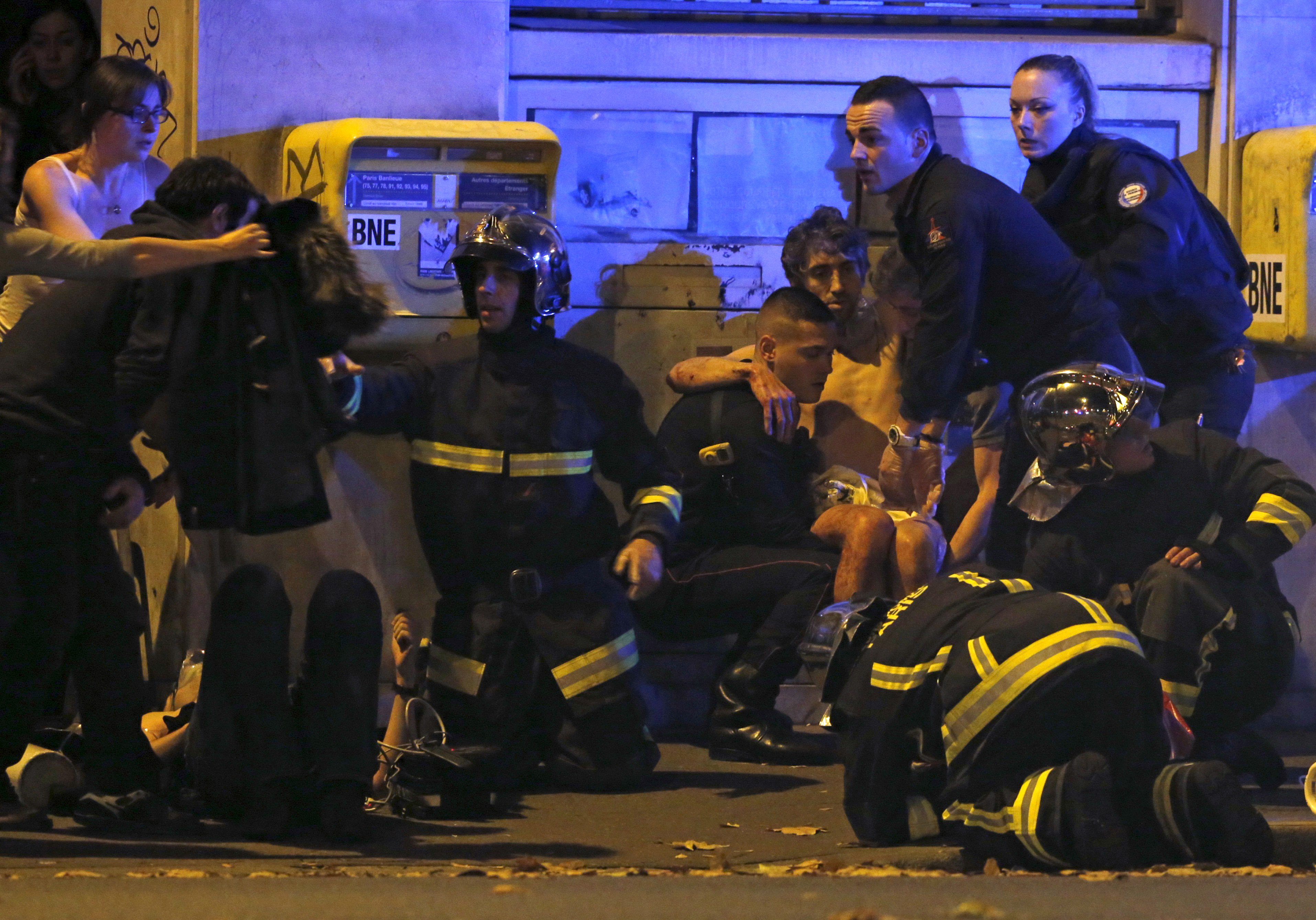
"It took long to find an article in English reporting on the Iraqi bombs. That speaks volumes," says Ruba Ali Al-Hassani, a transitional law researcher at Osgoode Hall Law School, York University. "Before self-righteously demanding that Muslims condemn Paris attacks, please note that ISIS has killed more than 20,000 Iraqis thus far in 2015. Has the world stopped to honor those dead and condemn violence against them? Has any non-Iraqi put up a Facebook profile picture (as shallow as that may be) to show solidarity? Empathy goes both ways. All the dead deserve to be honored. May they all rest in peace,” adds al-Hassani.
What Is Next?
Many observers compare Friday attacks in Paris with 9/11. The French prime minister said that France will take the war against ISIS to Syria and Iraq as well as France. France's engagement in the war against ISIS has already begun, with more air strikes in Raqqa, Syria—ISIS's headquarters—and France might deploy special forces in Syria. Libya could be another arena for direct French military intervention.
Despite all the calls to not blame the refugees for the Paris attacks, it is almost certain that Europe will restrict its policy regarding refugees from the Middle East. Poland already declared it will not honor an EU agreement setting quotas on the refugees to be sheltered. President Obama, on the other hand, is committed to taking 10,000 Syrian refugees, as promised.
Inside France, the French far right will benefit from the attacks. A crackdown on extreme Islamic figures and institutions is imminent. The Muslim community in France will suffer more racial crimes and Islamophobia, which only serves ISIS and al-Qaeda's objectives.
Anatomy of Fear
Except for the United States, France has witnessed more ISIS terror plots than any other Western country. Between July 2014 and August 2015, France was the victim of six plots, according to a study on ISIS terror plots in the West released by the Henry Jackson Society. France has the largest Muslim community in the West, numbering about 5 million people, most of them first- or second-generation immigrants from North Africa.
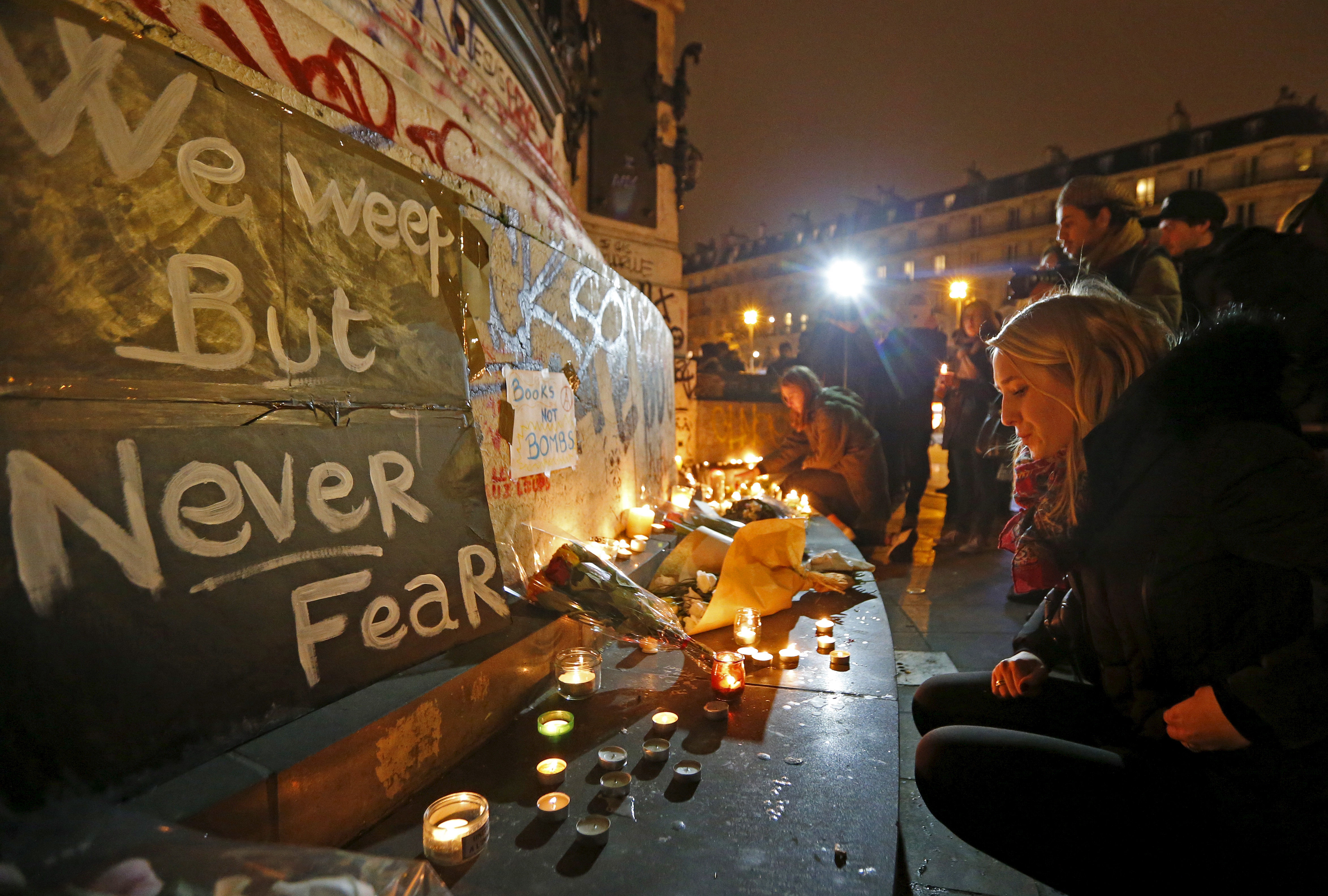
Many of France's Muslims are marginalized. They have never been truly integrated within French society. Many of them live in the poor suburbs of Paris and other cities, with limited access to jobs or education. They also suffer from racial attacks and Islamophobia. About 70 percent of inmates in French prisons are Muslim. With all that in mind, France is the easiest target for ISIS terror. And it is very hard to track all angry Muslims in France.
The Paris attacks targeted parts of Paris that are more popular with ordinary Parisians than tourists. With the tragic loss of lives, a loss of the sense of security is gone too. “We are dealing with new factors that don't represent states, nor small local rebellions. They are networks that connect the local with the global in a form of roving terror that aims to disturb security, destabilize the social trust...and transfer the borders to the cities by creating cultural, ethnic, religious and sectarian attractions that gradually turn to physical borders,” adds Hasan.
Hasan says that people are divided into groups that don't trust each other, the lost sense of security can tear a society apart. “When you get into the metro or the bus, you start looking into the faces of those present, searching for one of ‘them’... then you remember that the grocery seller in your area is one of them, so you stop going to his shop. Going to a concert or a soccer match or to the cinema becomes a complicated issue that requires thinking and preparing for multiple times. Fear changes the behavior of people, creates new norms and makes a collective paranoia that allows the rise of the ‘fear contractors’ to play a major role in defining what ‘we’ and ‘them’ means.”
Teaching Hatred in the Second Grade
Many moderate Muslims around the world blamed the formal and informal education system in the Middle East for the rise of Islamic terrorism. On page 7 of the Islamic education textbook for the second grade in Iraqi schools, there is a definition provided for “the ones that Allah's anger will be upon.” The definition is “Jews and those who are similar to Jews.” The Iraqi novelist Ahmed Saadawi, who won the International Prize for Arabic Fiction in 2014, says that "those who are similar to Jews" mean Christians. “It makes the poor student stop at yet another blind phrase that needs further explanation, an explanation that only feeds racial hatred.”
A recently published Lebanese children’s book has appalling sections with graphic drawings. “Then suddenly, the guards come and bring with them the severed heads of Omar bin Saad and Obeidallah bin Ziad and place it in front of this heroic commander," one paragraph reads, with accompanying illustrations of drowning of severed bodies.

When ISIS produces its school textbooks with cover photos of New York’s Lady Liberty exploding, this hate speech doesn’t lack precedent. The largest distributor of hate speech in our world is Saudi Arabia, whose penal code is similar to that of ISIS. The difference is that Saudi Arabia is so much bigger in land, population and wealth.
“The Shiites, the communists, the Jews, the Christians. Oh Allah. Those unjust. Divide them, weaken their strength, and make them suffer the worst. Oh Allah, living and existing by his own, allow the jihadists to behead them,” says a voice supposedly belonging to the Imam of the Grand Mosque in Mecca in a widely circulated video. Luay Jawad Al-Khateeb, a fellow at Brookings Institute, says the video extols “Paris attacks, Beirut attacks, Baghdad attack, 9/11...explained in 30 seconds by this ‘humanity loving’ Saudi preacher in Mecca.”
“If we want to tackle this wave of terrorism and its driving hate ideologies, we need to start at the source: Saudi mosques, schools and Saudi-financed media. That is where the research and development of terrorism is conducted,” says Dr. Abbas Kadhim, a senior foreign policy fellow at Johns Hopkins School of Advanced International Studies.
Ayad Jamaladdin, an Iraqi progressive cleric, has a deeper cure for the problem. “A quick recipe to destroy Islamic terrorism: A. Ban the teaching of religion in schools. B. Ban the teaching of Islamic history. C. Turn 90 percent of mosques into public libraries or sport clubs or cafes or anything else. D. For each million citizens, one cleric is assigned only. E. Ban the religious media.”
The Lost Middle East
In order to reform education in the Middle East, the world needs first to stop the civil wars and conflicts that are ripping apart Syria, Iraq, Libya, Yemen, Afghanistan and Somalia. Just five years ago, tens of millions of hopeful young men and women in Tunisia, Egypt, Yemen, Libya, Syria and Bahrain took to the streets in peace to demand democracy and a better future. Four dictators whose combined time in power reached 129 years were overthrown by the Arab Spring, one of the greatest human revolutions in modern history.
But with the Syrian regime gassing its own people, the Saudi army suppressing Bahraini protesters, the army in Egypt overthrowing an elected president in a military coup, the rebels in Libya turning into militias and the Houthis in Yemen overthrowing the legitimate government, combined with the economic, social and political difficulties facing new democracies and the negligence of the West, the Arab Spring became a winter and ISIS and al-Qaeda took over.
“Most important contexts for Paris bombings: Failed states in Afghanistan, Iraq, Libya, Syria, Yemen with no hope of stability,” says Ian Bremmer, president of Eurasia group, a political risk consultancy.
Today, many of those young men and women are losing hope and are being radicalized by ISIS and al-Qaeda as they see their countries lost to warlords and tyrants. As Voltaire once said, "Those who can make you believe absurdities can make you commit atrocities."

